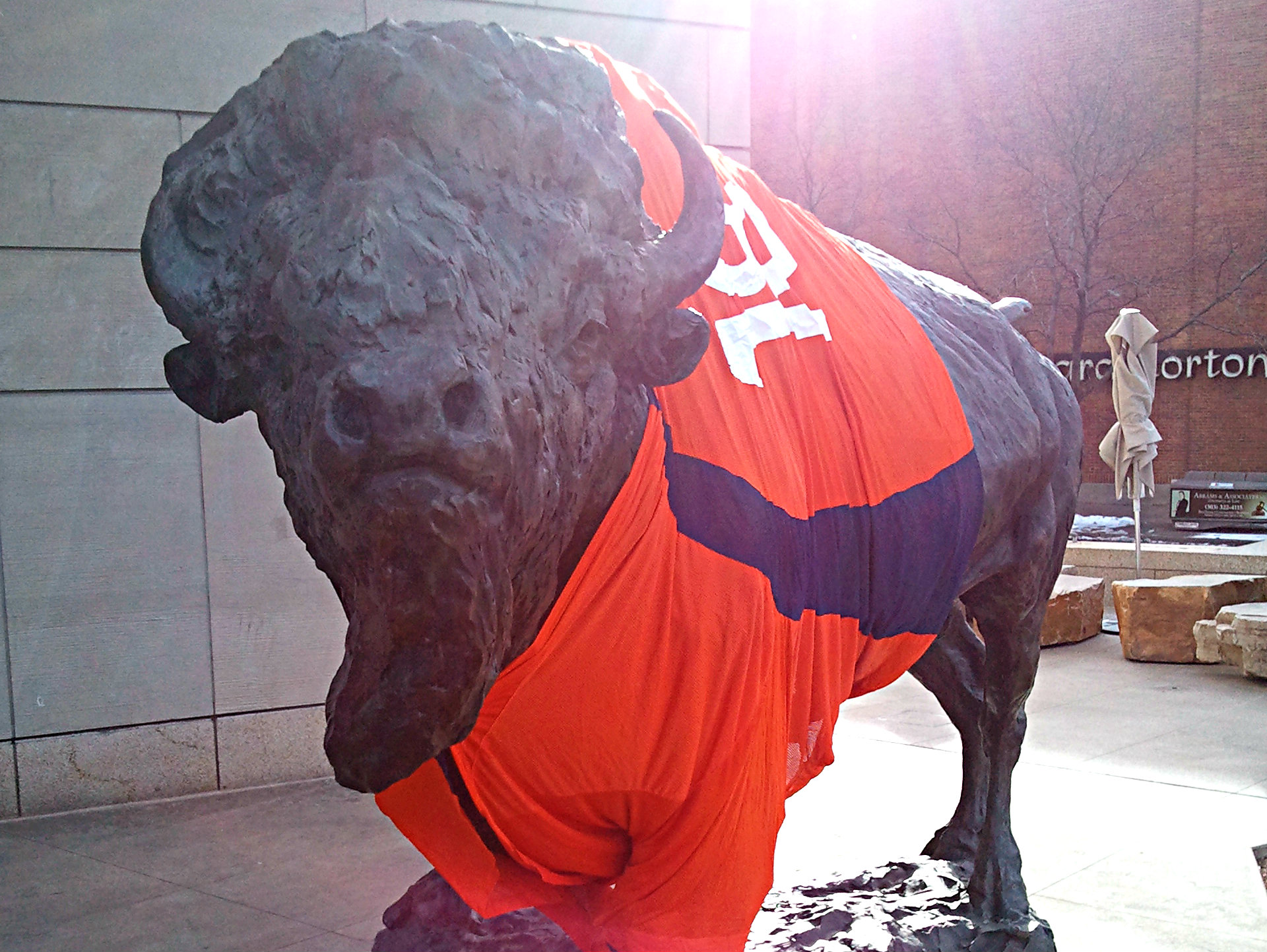
But the business of NFL-licensed apparel is no game.
The NFL sold more than $3 billion of licensed merchandise in 2013, according to Matt Powell of SportsOneSource, a sports apparel industry research and analysis firm. Jersey sales make up about a third of that total.
That's good news for Nike Inc. which two years ago won a long-term contract to produce the NFL-licensed T-shirts and jerseys. New Era holds a similar contract on NFL caps.
Merchandisers await the final whistle
These are sophisticated marketing firms. Nike and New Era were ready to sell official merchandise to Broncos fans almost immediately after the team won the AFC championship game against the New England Patriots two weeks ago.
Nike contracts with local printing shops to be at the ready. When the NFL decides the game is called -- often waiting until the final whistle -- they spring into action. Merchandise is driven in vans to local stores and sold to eager fans.
It's an approach that the marketing gurus at Nike dub "Hot Market," or converting excitement into sales.
Nike, New Era, the NFL and retail stores (including Colorado-based Sports Authority) all make money when team merchandise sells. Perhaps surprisingly, the players make nothing.
Another surprise to some is that sales don't benefit the Broncos any more than any other NFL team. The NFL divides the merchandising dollars evenly across the league in an effort to create parity and subsidize some of the smaller market teams. The exception is the Dallas Cowboys organization, which years ago secured the rights to enter into its own licensing agreements.
Black market
These rules only apply to gear officially licensed by the NFL. There is a big black market in Broncos orange, too, with vendors selling "unofficial" merchandise at roadside stands and online.
While Nike and the NFL actively seek these illegal sellers out, they can be difficult to stop.
Still, even Nike can get a kick out of the homemade jersey -- in size XXXXXL -- sported by the bison outside Denver’s History Colorado Center.









